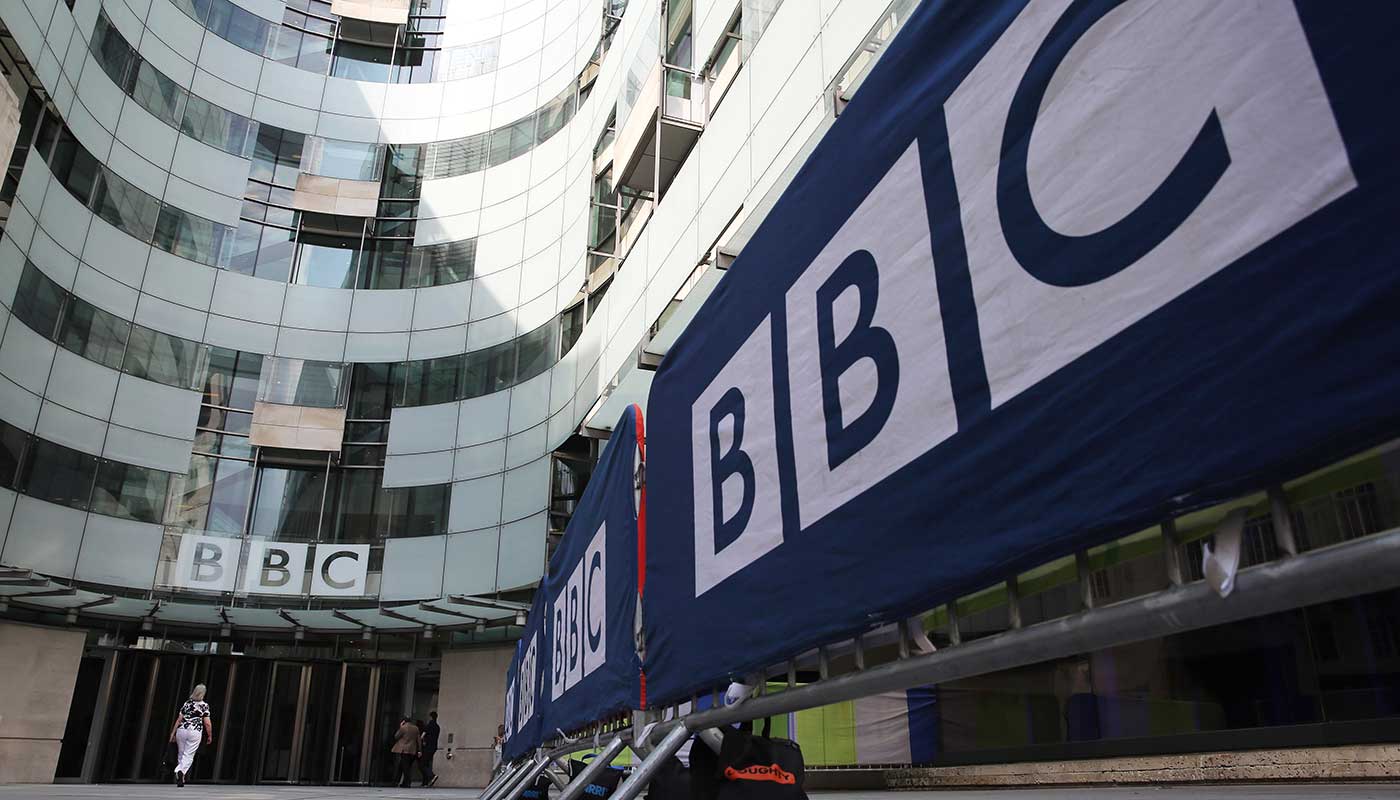The government’s ‘escalation in hostilities’ against the BBC
Ministers reject plea for cost of licence fee to keep up with inflation

A free daily email with the biggest news stories of the day – and the best features from TheWeek.com
You are now subscribed
Your newsletter sign-up was successful
Ministers have rejected a plea by the BBC for the cost of its licence fee to keep up with inflation as it has done in the past.
Instead the licence fee, which currently stands at £159, will go up by less than the rate of inflation over the next five years resulting in a real-terms reduction in funding for the national broadcaster.
A government source, privy to the current negotiations between Westminster and the BBC, told The Times that while the corporation “is a hugely important national institution”, it has “got to be subject to the same efficiency savings as everyone else”.
The Week
Escape your echo chamber. Get the facts behind the news, plus analysis from multiple perspectives.

Sign up for The Week's Free Newsletters
From our morning news briefing to a weekly Good News Newsletter, get the best of The Week delivered directly to your inbox.
From our morning news briefing to a weekly Good News Newsletter, get the best of The Week delivered directly to your inbox.
A second source told the paper that refusing to raise the cost of the licence fee, which brings in £3.2bn a year for the BBC, in line with inflation could lead to significant cuts to “quality” programming. In March, the corporation said that the licence fee “is the best way of funding a universal BBC”.
Currently those aged 74 and over who are receiving pension credit are able to apply for a free TV licence. Before 1 August 2020, all over-75s were entitled to a free licence, but the BBC changed the rules last year in a cost-cutting measure designed to save up to £1bn. The move affected more than three million households, with the charity Age UK describing it as “a kick in the teeth”.
Care home residents and blind and severely sight-impaired people are also entitled to a reduced licence fee. The maximum penalty for watching and recording BBC programmes without a licence is a £1,000 fine plus any legal costs and compensation.
In March this year, Glyn Isherwood, interim chief operating officer at the BBC, revealed that of more than 27 million households across the UK, 1.7 million people in 2020 elected “not to have a licence and do not enjoy the BBC services”. This is an increase from 1.5 million in previous years, Metro reported.
A free daily email with the biggest news stories of the day – and the best features from TheWeek.com
Many Tory MPs have cited the success of paid-for streaming services, such as Netflix and Amazon Prime, in their push for the BBC licence fee to be reduced. “It doesn’t play well in the red wall,” one told The Times. “I don’t think they should be getting any extra when they pay Gary Lineker God knows how much.”
The decision not to increase the licence fee in line with inflation over the next five years is the latest blow to the BBC in its long-standing battle with the Conservative government.
Most recently, this played out in the row over the appointment of Jess Brammar as executive news editor at the corportation. The former editor of HuffPost UK, described by the New Statesman as “a champion of public interest journalism and a protective leader of her reporters when under fire from those in power”, experienced a brutal takedown by the Mail on Sunday when her appointment was announced.
The paper described Brammar as “the BLM [Black Lives Matter] supporter with [a] Guardian toyboy”, referring to her husband, The Guardian’s media editor Jim Waterson, who is seven years her junior.
The Mail on Sunday’s “splenetic coverage of the story”, as the The i described it, claimed Brammar’s appointment “would be an affront to the BBC’s commitment to unbiased news reporting”, using a “few historic tweets” as evidence. “This is a meaningless row, confected by those who want to see the BBC weakened”, wrote i columnist Simon Kelner.
“Boris Johnson’s administration has made no secret of its desire to clip the corporation’s wings, viewing its empire as a serious impediment to competition,” wrote Graeme Paton in The Times, commenting on the below-inflation rise in the licence fee.
The government’s decision “marks an escalation in hostilities by No 10” but “should come as little surprise”, he added. “The only question is whether it could be a precursor to far more radical reform in the run up to 2027, when the BBC’s governing charter expires.”
Kate Samuelson is The Week's former newsletter editor. She was also a regular guest on award-winning podcast The Week Unwrapped. Kate's career as a journalist began on the MailOnline graduate training scheme, which involved stints as a reporter at the South West News Service's office in Cambridge and the Liverpool Echo. She moved from MailOnline to Time magazine's satellite office in London, where she covered current affairs and culture for both the print mag and website. Before joining The Week, Kate worked at ActionAid UK, where she led the planning and delivery of all content gathering trips, from Bangladesh to Brazil. She is passionate about women's rights and using her skills as a journalist to highlight underrepresented communities. Alongside her staff roles, Kate has written for various magazines and newspapers including Stylist, Metro.co.uk, The Guardian and the i news site. She is also the founder and editor of Cheapskate London, an award-winning weekly newsletter that curates the best free events with the aim of making the capital more accessible.